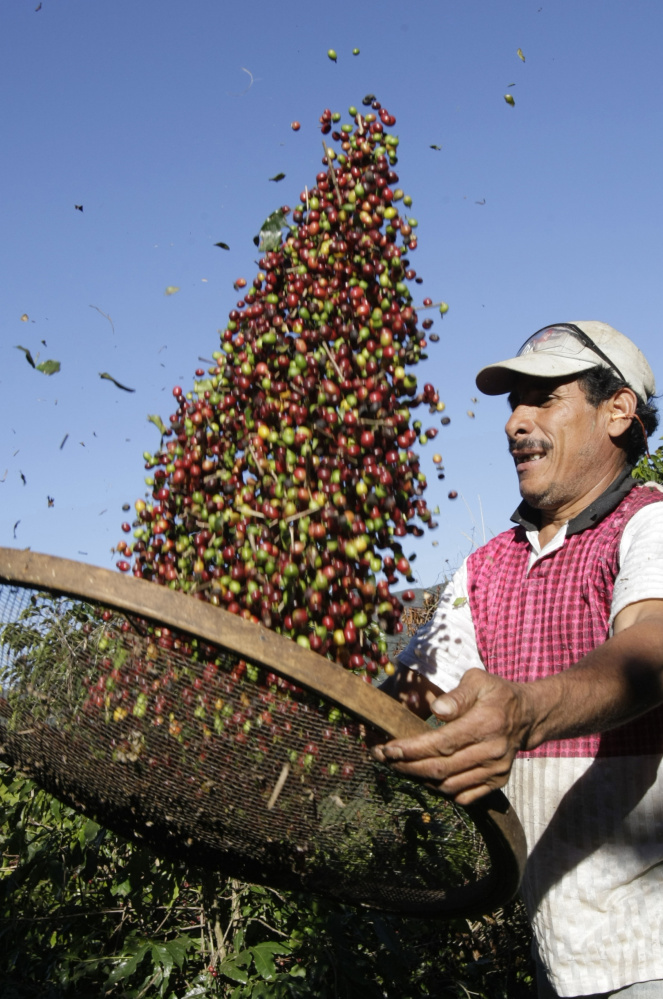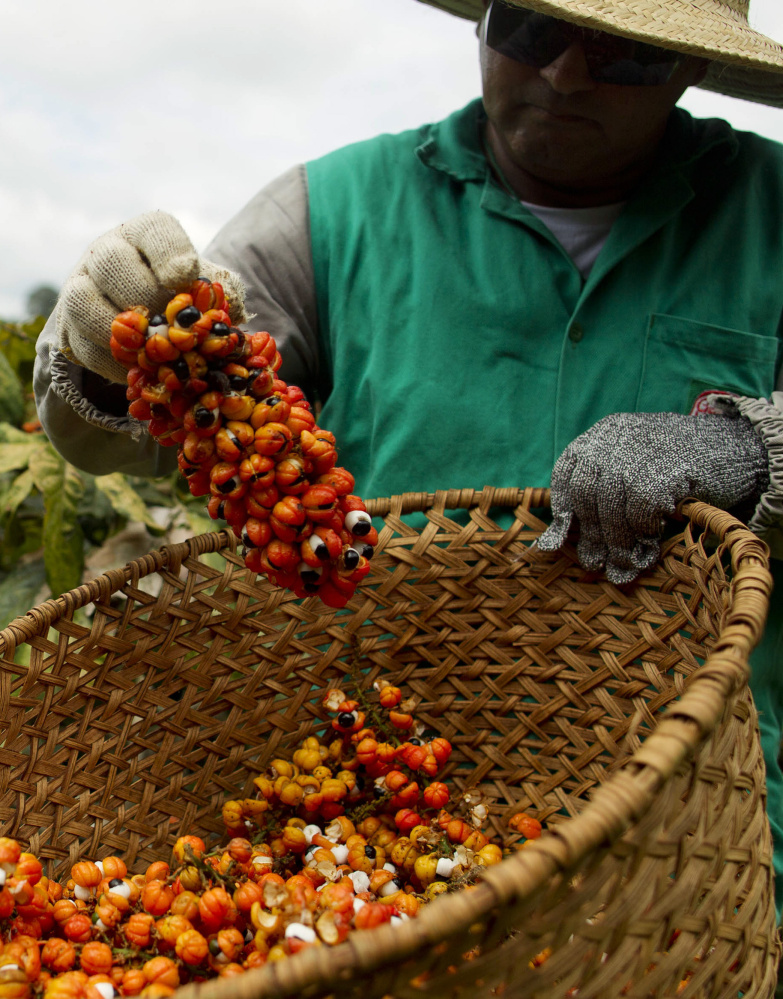A new report released Wednesday sheds new light on punishing issues labor issues in Brazil’s coffee plantations, and also illuminates some progressive efforts to protect coffee workers.
On some of the 15 Brazilian coffee estates featured on the government’s “dirty list,” armed guards supervised workers and threatened them with force if they tried to leave. In other cases, laborers met physical abuse. Some lived in squalid conditions, toiled more than 10 hours each day, and worked under searing sunshine or driving rain, without respite.
The report – researched in 2013 and 2014 by Catholic Relief Services’ Coffeelands project, in collaboration with journalism collective Repórter Brasil – described the state of affairs on these estates, where workers faced “conditions analogous to slavery,” according to the Brazilian Ministry of Labor and Employment.
Workers on some of the coffee farms taken to task were “regularly required . . . to apply toxic agrochemicals” without protective equipment, the report found. Others had to give up their identity documents or work their way out of crippling debt.
Released to coincide with the Specialty Coffee Association of America expo in Atlanta, the findings were aimed toward an audience of consumers and policymakers, but most of all, toward the “specialty” fringe of the coffee industry, which pays close attention to sourcing and supply chains, and is thus uniquely positioned to adopt ethical standards that could pave the way for broader change across less innately exacting agricultural sectors.
“Specialty coffee has for decades built a track record for inclusion and transparency, beginning with the emergence of certified coffees in the U.S. market, which introduced a level of transparency that didn’t exist before,” Michael Sheridan, director of the CRS Coffeelands program, told Foreign Policy. “Transparency alone doesn’t solve farmworker issues or issues of modern slavery, but it’s a necessary precondition for addressing these issues.”
“Coffee has consistently pioneered supply chain relationships and sourcing that have been taken up by other crops,” he added.
Brazil is the largest producer and exporter of coffee in the world. Most of the country’s estimated 360,000 coffee farms are small-time growers. Coffee accounts for around 8 million Brazilian jobs. The 15 estates that made it onto the government’s dirty list represent an “artificially low” number, the report found: “Researchers could not generate a reliable estimate of the scope of slave labor in Brazil’s coffee sector … because of limitations on the country’s inspection capacity.” Of the estates the researches investigated, mid-sized ones were most prone to poor practices, because small ones were mostly run by families, while large ones had incentives to mechanize extensively and adhere to international certification standards.
Mid-sized estates frequently employ seasonal migrant laborers. For this reason, “farmworkers are a very difficult population to reach and to work with,” Sheridan said.
Send questions/comments to the editors.




Success. Please wait for the page to reload. If the page does not reload within 5 seconds, please refresh the page.
Enter your email and password to access comments.
Hi, to comment on stories you must . This profile is in addition to your subscription and website login.
Already have a commenting profile? .
Invalid username/password.
Please check your email to confirm and complete your registration.
Only subscribers are eligible to post comments. Please subscribe or login first for digital access. Here’s why.
Use the form below to reset your password. When you've submitted your account email, we will send an email with a reset code.